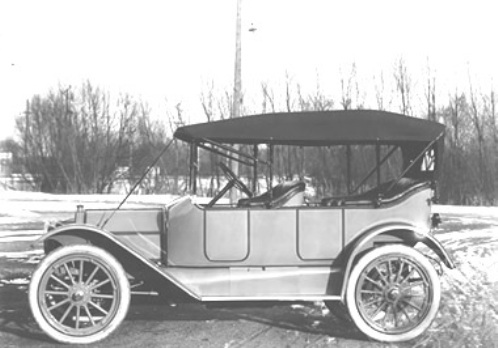
In the first quarter of the 20th century, thousands of automakers popped up in the United States. Most of them would only survive a few years, if that. A few would stick it out a bit longer, like Mason Motor Company of Iowa. First founded in 1906, Mason, later Mason-Maytag underwent severe mismanagement in the early 1910s after a sale to Frederick Maytag. It would later move to Flint, Michigan after Maytag left the company. To survive, the company took contracts to build engines and other parts for the new Chevrolet company. However, it just wasn’t enough. Facing dire circumstances, Mason declared bankruptcy. Chevrolet, under co-founder William Durant, purchased the company outright, using its factories for his automobiles The company was dissolved entirely once GM purchased Chevrolet in 1918.
This history of Mason Motor Car Company
The first Mason Motor Company car rolled off a Des Moines, Iowa assembly line in 1906. Edward Mason, a lawyer, financed the company for his local mechanics, brothers Fred and August Duesenberg. The brothers designed the car and powertrain and led management and assembly efforts for Mason. Marketing efforts for the new car promoted its strength by having it drive up the 47 steps of the Iowa state capitol building. Other advertisements boasted about the excellent fuel efficiency of the Duesenberg two cylinder engine, claiming it could carry the car 475 miles on 18 gallons of gasoline. The 1906 Mason cost $1,250.

In 1909, washing machine magnate Frederick Maytag purchased the company and starting the next year the cars were badged Maytag-Mason. At this time that the Duesenberg brothers left the company, having decided to pursue racing interests. In 1913 they would officially found the Duesenberg Motor Company, Inc. Back at Maytag-Mason, sales slumped. Mr. Maytag sold his interest in the company only two years after acquiring it. The name was reverted back to Mason Motor Car for 1913, but the jumbled leadership proved lethal. The company went bankrupt in 1915 providing Chevrolet with the opportunity to completely buy out the company.






















